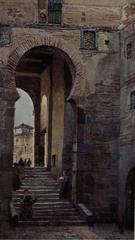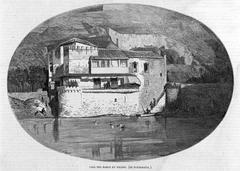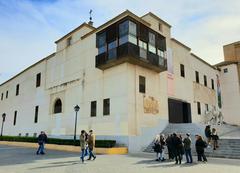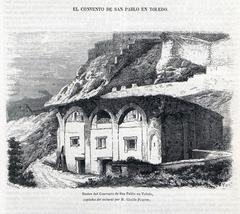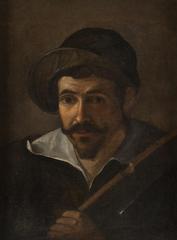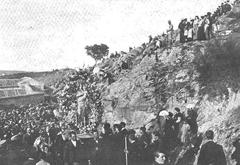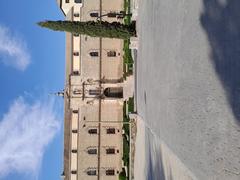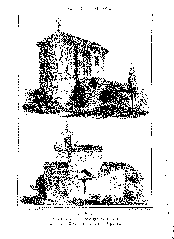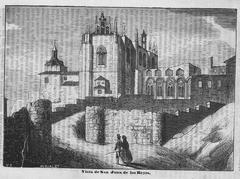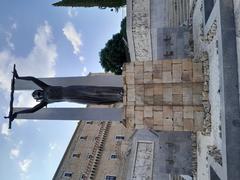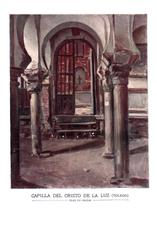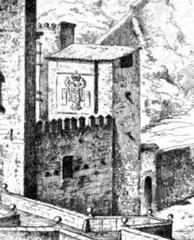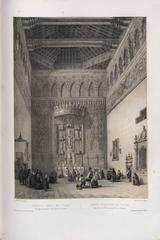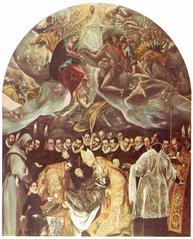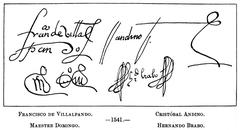Mezquita de las Tornerías Toledo: Complete Guide to Visiting Hours, Tickets, and Historical Insights
Date: 04/07/2025
Introduction
In the heart of Toledo’s UNESCO-listed old city lies the Mezquita de las Tornerías, a rare architectural gem embodying Spain’s multicultural legacy. Built in the 11th century atop Roman and Visigothic foundations, this mosque is a living testament to the city’s Islamic heritage and its centuries-long status as a crossroads of civilizations. Following an extensive six-year restoration completed in 2025, the Mezquita now serves as a vibrant cultural and artisan hub, seamlessly fusing its historical essence with contemporary functions. This guide provides a comprehensive overview of the Mezquita de las Tornerías, including its rich history, distinctive architecture, visiting hours, ticketing, practical tips, accessibility, and nearby attractions—ensuring you make the most of your visit to one of Toledo’s most remarkable sites (mezquitadetornerias.es, Vinetur, Expansión, toledoguiaturisticaycultural.com).
Historical Overview
Islamic Foundations and Medieval Toledo
The Mezquita de las Tornerías was constructed in the mid-11th century, during a period when Toledo was a flourishing center of Islamic culture following its conquest by Táriq ibn Ziyad in 711 CE (begaco.es). Situated in the bustling commercial Arrabal de Francos, the mosque’s location and dual-level structure reflect the city’s layered past. Archaeological investigations reveal that the mosque was built atop Roman water tanks, and features Visigothic horseshoe arches in its foundations—highlighting Toledo’s continuous urban evolution (cultura.castillalamancha.es, paseartetoledo.es).
Architecture and Religious Function
Architecturally, the Mezquita de las Tornerías draws inspiration from the nearby Mosque of Cristo de la Luz (Bab al-Mardum). Its nearly square plan is divided into nine compartments by intersecting naves, each covered by brick sail-vault domes. The central compartment is distinguished by a ribbed dome, and the prayer hall’s horseshoe arches rest on columns whose capitals were repurposed from Roman and Visigothic structures (en.wikipedia.org). The mihrab (prayer niche) is oriented slightly off due south—likely due to urban constraints—and is decorated with a rare scallop shell motif, an unusual feature in Iberian mosques (cultura.castillalamancha.es).
Christian Reconquest and Adaptive Reuse
Following the Christian reconquest of Toledo in 1085 by Alfonso VI, the mosque continued to function as a place of worship for centuries, reflecting the city’s “Three Cultures” ethos (toledoguiaturisticaycultural.com). The last documented reference to its religious use dates to 1498, after which it was desacralized and repurposed for secular uses such as an inn, artisan workshops, and private residences. This adaptive reuse led to the gradual obscuring of its original identity until its rediscovery in the early 20th century (en.wikipedia.org).
Rediscovery and Restoration
The building’s true Islamic origins were officially recognized in 1905. Since then, it has been declared a Bien de Interés Cultural and incorporated into Toledo’s World Heritage ensemble. After decades of neglect and intermittent closures, a major restoration project began in 2019, culminating in the mosque’s reopening in January 2025 as the Centro Regional de Promoción de la Artesanía y Turismo—cementing its dual role as both historical monument and cultural center (Expansión).
Architectural Features
Structural Layout and Foundations
Located at Calle Tornerías, 27, the mosque’s unique two-level structure is a product of its sloping terrain. The lower floor originally housed market stalls (zoco), while the upper floor contains the prayer hall. Visitors can view Roman and Visigothic remains—including 7th-century horseshoe arches—through a modern glass walkway (paseartetoledo.es).
Interior Design
The prayer hall is rectangular, divided into three naves by two rows of horseshoe arches, supported by columns of varied origin. The ceilings feature original and restored vaults, with a lantern (“linterna”) providing natural light—a design element shared with the Mosque of Cristo de la Luz. The marked vault keys may identify the original artisans (paseartetoledo.es).
Decorative and Material Details
Materials include brick (for arches and vaults) and stone (for columns and foundations), blending stability with Islamic artistic flourishes. Some bricks bear marks of historical events, such as soot from a 15th-century fire, underscoring the building’s resilience (paseartetoledo.es).
Cultural Significance and Modern Use
The Mezquita de las Tornerías is a potent symbol of Toledo’s multicultural heritage, reflecting centuries of religious coexistence and architectural adaptation (Vinetur). Its recent restoration has transformed it into the Regional Center for the Promotion of Crafts, hosting exhibitions, artisan workshops, and cultural events. It also houses the city’s main tourism office, providing resources and recommendations for visitors (mezquitadetornerias.es).
Visiting Information
Location
- Address: Calle Tornerías, 27, 45001 Toledo, Spain
- Getting There: Located in the city’s historic center, the mosque is within walking distance of the Alcázar and Plaza Mayor. Toledo is easily accessible by train or bus from Madrid.
Visiting Hours
- Tuesday to Saturday and public holidays: 10:00–15:00 and 16:00–18:00
- Sundays: 10:00–15:00
- Closed Mondays
- Note: Hours may vary during festivals and special events; always check the official website for updates (Vinetur).
Tickets and Admission
- General Admission: Free of charge
- Special Events/Exhibitions: May require a ticket; purchase onsite or online via the official website
Guided Tours and Visitor Services
- Guided Tours: Available and highly recommended for in-depth understanding; book through the visitor center or online
- Audio Guides: Offered in multiple languages
- Tourism Office: Located onsite for maps, guides, and local information
Accessibility
- Wheelchair Access: Ramps and elevators have been installed; however, some historic areas may remain challenging—contact the mosque in advance for specific requirements
- Facilities: Restrooms and accessible pathways are available
Visitor Tips
- Arrive early or visit late afternoon for a quieter experience and optimal lighting for photography
- Comfortable footwear is recommended due to uneven surfaces and cobblestone streets nearby
- Photography is permitted (no flash); respect the monument and other visitors
- Download the Audiala app for audio guides and interactive maps
What to See and Experience
- Islamic Architectural Details: Horseshoe arches, ribbed domes, and the distinctive mihrab
- Ancient Foundations: Roman and Visigothic elements visible through a glass walkway
- Cultural Activities: Participate in or observe artisan craft workshops and temporary exhibitions
- Tourism Resources: Get personalized recommendations and city guides from the onsite office
Nearby Attractions
- Mosque of Cristo de la Luz (Bab al-Mardum): A beautifully preserved 10th-century mosque
- Toledo Cathedral: A Gothic masterpiece on the site of the city’s former Great Mosque
- Alcázar of Toledo: Imposing fortress with panoramic city views and a military museum
- Jewish Quarter: Synagogues, museums, and the vibrant history of Toledo’s Jewish community
Frequently Asked Questions (FAQ)
Q: What are the Mezquita de las Tornerías visiting hours?
A: Tuesday to Saturday and public holidays, 10:00–15:00 and 16:00–18:00; Sundays 10:00–15:00; closed Mondays.
Q: Is there an admission fee?
A: General admission is free. Special events or exhibitions may require a ticket.
Q: Is the mosque accessible for visitors with reduced mobility?
A: Yes, most areas are accessible, but some historic sections may be challenging—please inquire ahead.
Q: Are guided tours available?
A: Yes, guided tours and audio guides can be arranged through the visitor center or official website.
Q: Can I take photographs inside?
A: Yes, but flash photography is discouraged to preserve the historic fabric.
Visuals and Interactive Elements
- Official website: Offers high-resolution photos, virtual tours, and interactive maps (mezquitadetornerias.es)
- Alt text suggestions:
- “Interior horseshoe arches of Mezquita de las Tornerías in Toledo”
- “Exterior façade of Mezquita de las Tornerías historical mosque”
Planning Your Visit
- Check the official website (mezquitadetornerias.es) for the latest on visiting hours, tickets, and guided tours
- Download the Audiala app for audio guides and interactive maps
- Combine your visit with nearby attractions for a complete Toledo experience
Conclusion
The Mezquita de las Tornerías is not only a rare relic of Toledo’s Islamic past, but a vibrant example of heritage breathed anew through careful restoration and cultural programming. Its distinctive architecture and rich history offer a window into the city’s era of coexistence, while its modern functions as a craft center and tourism hub connect visitors to both past and present. Plan your visit today to immerse yourself in Toledo’s living history, and let the Mezquita de las Tornerías inspire your journey through the “City of Three Cultures.”
References
- Mezquita de las Tornerías official site (mezquitadetornerias.es)
- Vinetur
- Expansión
- Toledoguiaturisticaycultural.com
- Pasearte Toledo
- Wikipedia, Mosque of las Tornerías
